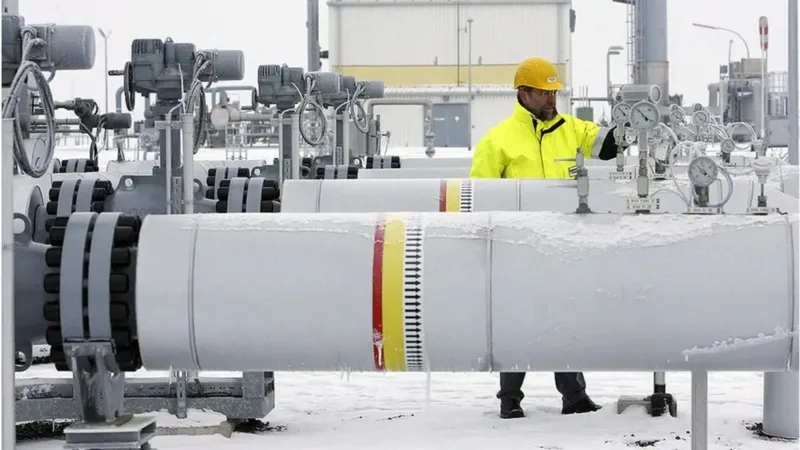The European Commission has released a detailed roadmap outlining the European Union’s plan to eliminate its dependence on Russian energy supplies by the end of 2027, including all imports of Russian gas and liquefied natural gas (LNG).
According to the proposal, EU member states will be required to end all imports of Russian gas, LNG, oil, and nuclear fuel over the next three years. The plan is part of a broader strategy to bolster the EU’s energy security and reduce financial flows to Russia following its full-scale invasion of Ukraine in 2022.
“No more will we permit Russia to weaponise energy against us… No more will we indirectly help fill up the Kremlin’s war chests,” said Dan Jørgensen, European Commissioner for Energy, during a press conference in Strasbourg on Tuesday.
In response, Kremlin spokesperson Dmitry Peskov stated to Reuters that the EU was “shooting itself in the foot” by continuing to distance itself from Russian energy. Moscow has criticized the EU’s energy shift since it began following the conflict in Ukraine.
The European Commission will present a set of legislative proposals in June, requiring all EU member states to submit national plans for phasing out Russian energy imports. These plans must include specific strategies to replace Russian oil and gas by the end of 2027, as well as proposals for ending reliance on Russian uranium, enriched uranium, and related nuclear materials.
The roadmap emphasizes enhancing energy efficiency, accelerating renewable energy deployment, and diversifying sources of energy as the primary means for achieving the shift. While dependence on Russian energy has already fallen significantly since 2021, the EU remains partially reliant on Russian supplies.
According to Commission figures, Russian gas accounted for 45% of EU imports in 2021, a share that had dropped to 19% by 2024. Russian oil imports fell from 27% in early 2022 to just 3% in 2024. However, 14% of uranium used in the EU was still sourced from Russia as of this year.
The report argues that continued reliance on Russian gas, oil, and nuclear materials poses a threat to the EU’s economic security and contributes financially to Russia’s war efforts. “We’ve come far, but not far enough,” Jørgensen stated, adding that the measures outlined will be introduced in a “stepwise and gradual” manner to limit economic disruption within the EU.
In addition to reducing reliance on traditional energy imports, the EU roadmap includes new efforts to disrupt Russia’s use of “shadow fleets” — oil tankers with opaque ownership and insurance structures — which Russia uses to circumvent international sanctions and continue oil exports.







